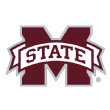The Final Four will be a battle of heavyweights as all four No. 1 seeds advanced to Columbus.
UConn brings an unbeaten record to its 11th consecutive and 19th Final Four, and the Huskies are once again the favorite, with the added motivation of avenging last year's loss to Mississippi State.
With four players sidelined with ACL injuries, no true point guard and only seven scholarship players, Notre Dame's journey to the Final Four is the most remarkable.
Louisville, the Irish's ACC partner, has won its four NCAA tournament games by an average of 27.5 points. The Cardinals are making their third trip to the Final Four and first since 2013, but this is Jeff Walz's best team and first No. 1 seed at Louisville.
Mississippi State returns to the national semifinals for a second straight year, looking to take that last step in the evolution of the program Vic Schaefer took over in 2012. The Bulldogs (36-1) have been the nation's second-best team all season, with just one loss.
But the Bulldogs also remain the most unfamiliar team to the rest. They will be playing the Cardinals for the first time. Meanwhile, UConn played both Notre Dame and Louisville earlier this season. And the Irish and Cardinals, as ACC regular-season co-champions, met twice; Louisville won both.
This is the fourth time in women's NCAA tournament history that all four No. 1 seeds reached the sport's final weekend. But before they take the floor in Columbus, we look at how each team arrived at the Final Four, the moments that propelled their seasons from good to great, and preview what's to come in Friday's national semifinals.
Defining moments

Mississippi State: An SEC championship
Schaefer's team has improved each of his six seasons in Starkville, and his plan for growth has worked impeccably. But even in reaching last season's national championship game, there was still work to be done. None of Schaefer's five previous Mississippi State teams -- or any women's team at the university, for that matter -- had won an SEC regular-season title. Mississippi State added that to its résumé on Feb. 18 with a win over Texas A&M that clinched the regular-season championship a full week before the SEC schedule was even completed. The Bulldogs also became just the third SEC team to go undefeated in league play, and finished four games ahead in the standings. Four-year seniors Blair Schaefer, Victoria Vivians and Morgan William were part of a school-record 51 SEC wins.

Louisville: Toppling the Irish
Walz also guided the Cardinals to the Final Four in 2009 and 2013, and his teams have reached the NCAA tournament in nine of his first 10 seasons. But Louisville had never won a conference championship since he arrived in 2007, and since joining the ACC in 2013, the Cardinals couldn't get over the Notre Dame hump. Louisville resoundingly scratched that off the list with a 33-point win over Notre Dame on Jan. 11, becoming the first team to drop 100 points on the Irish since 1998. The victory propelled the Cardinals to a share of the ACC regular-season title, provided the confidence to beat the Irish again in the ACC tournament final (that championship was also a school first), and put the Cardinals in line for a No. 1 seed.

UConn: A yearlong mission
The turning point for this season's Huskies came last March 31, the national semifinal loss to Mississippi State. Going undefeated is nothing new to this group. Neither is winning the American Athletic Conference, soundly beating other top-10 teams in the regular season or going to a Final Four. What is novel is not completing the job at the Final Four. The UConn players haven't seemed to dwell on last year's two-point overtime loss, but they haven't forgotten it, either. Gabby Williams acknowledged as much Monday when asked about the loss after the Huskies beat South Carolina in the Elite Eight, but only because the upset is mentioned to them in nearly every interview. They still had reasonably close calls against Notre Dame and Texas, but all roads led to taking care of business to get back to the Final Four for a chance at the program's 12th national title.

Notre Dame: 20 minutes to vanquish the Lady Vols
When Lili Thompson went down with an ACL tear in Notre Dame's second ACC game, Muffet McGraw lost her fourth player to injury and her last natural point guard. Two games later that was exposed in a 33-point loss to Louisville. A week later, the depleted Irish were down 23 points to Tennessee in the second quarter. The season was on the brink. It appeared the injuries were just too much. Then Notre Dame flipped the script. An enormous second-half rally produced a 14-point win. The Irish turned that momentum into a fifth straight ACC regular-season championship (shared with Louisville) and a No. 1 seed for the seventh year in a row. Now McGraw has her team in the Final Four for the sixth time in eight seasons.
Louisville vs. Mississippi State
ESPN2, 7 p.m. ET Friday
Why they'll win the national title
Louisville: The Cardinals' adaptability is perhaps the most important key to their success. They shut down high-powered offenses such as Oregon and Michigan early in the season. They played more high-paced games against Ohio State, Notre Dame and Syracuse. Louisville won a pair of grinders against NC State and Duke. The talent is versatile enough and athletic enough to take away the opponent's strengths or even outdo what the other team does best. It has worked that way all season.
And Louisville's defense has thrived in the NCAA tournament, holding three of four opponents to fewer than 60 points (and Boise State and Oregon to 42 and 43, respectively). Since the other three teams in Columbus rank among the top-five offenses in the herhoopstats.com ratings, the Cardinals will have to continue to deliver defensively.
Mississippi State: The Bulldogs can't deviate from what made 2017-18 so successful. They were the second-best team in the country all season long and would be heading into the Final Four unbeaten if not for a slip-up in the SEC tournament final against South Carolina.
This is by far Schaefer's best offensive team, and the defense, his specialty, ranks fourth in herhoopstats.com's defensive ratings. However, UConn, Notre Dame and Louisville are all ahead of Mississippi State on that list, but what they don't have is the size, power and post dominance of Teaira McCowan. The 6-foot-7 center is a nightmare matchup and has four 20-point, 20-rebound games this season, including one in the regional final against UCLA. She is Mississippi State's difference-maker.
Three keys
Who's the better perimeter shooting team: The Bulldogs (39.1 percent) are sixth in the country in 3-point accuracy. The Cardinals (37.7 percent) rank 14th. Long-range shooting, however, is more of a secondary weapon for each team, and wasn't much of a factor in their NCAA tournament runs until the regional final. It should play a much bigger role Friday. Louisville's Asia Durr and Mississippi State's Victoria Vivians are good players even when they aren't making 3-pointers -- but they are great when they are hitting from downtown. The better shooter could decide the game. Also, keep an eye on Louisville's Arica Carter (40.2 percent) and Mississippi State's Blair Schaefer (41.7 percent). Each makes her greatest individual contribution to their respective offenses from the 3-point line.
McCowan foul trouble: McCowan, who has produced 27 double-doubles this season, is the favorite to be the most dominant player on the floor. So can Louisville keep her off of it? McCowan got into early foul trouble against South Carolina in the Bulldogs' lone loss, playing just 24 minutes in that game. By comparison, Schaefer used her for an average of 38.5 minutes in the two regional games. Louisville got Oregon State's dominant post and best player, 6-foot-5 Marie Gülich, in foul trouble and turned that game into a rout. That's unlikely to happen the same way here, but the Bulldogs are much easier to handle with McCowan on the bench.
Rebound and go: Both teams like to get the ball up the floor and rebound well (Louisville ranks 24th in rebounding margin, Mississippi State 47th). Transition offense starts with rebounding. The team that rebounds best will probably run the best. And the team that runs the best will put the most pressure on the other defense and probably win the game.
The names you know
Asia Durr, Louisville: Even when she is playing well, it sometimes seems like Durr disappears. That's how smooth and casually easy her offensive game comes. The truth is she can go long stretches without scoring, but chalk that up to patience, not being timid. The ACC Player of the Year, who averages 18.7 PPG and shoots 44.6 percent from the field, went more than eight minutes without scoring in the regional semifinals against Stanford and still finished with 24 points. That kind of explosion, or the kind that produced 47 points against Ohio State in November, is what Louisville will be looking for on Friday.
Victoria Vivians, Mississippi State: Vivians was already good but has transformed her game more than anyone. As a junior, she often settled for 3-point shots, hitting just 28.1 percent from downtown. This season she has become a model of efficiency. That 3-point percentage rose to 41.4 percent and her overall field goal percentage improved from 37.1 percent to 48.2 percent. Perhaps it was the move to power forward as Schaefer went to a smaller, more spread-out attack. Or maybe it is just the continued run for a player who came into her own late in last year's NCAA tournament. But Vivians is a much better player and that has made the Bulldogs a better team.
Game-changers
Sam Fuehring, Louisville: The 6-foot-3 junior is the defender none of Louisville's other post players want to go up against in practice. She's tough and is the presence that always seems to get in the way, always seems to be involved when there is a 50-50 ball to be had. And Fuehring has become much more productive in the NCAA tournament: She has two double-doubles and is averaging 14 PPG compared to her 9.6 average during the regular season.
Morgan William, Mississippi State: She will forever be known as the player who hit the buzzer-beater to shock UConn and end the Huskies' NCAA-record 111-game winning streak in last year's Final Four. But she was also a player who scored 41 points just a game prior against Baylor in the 2017 Elite Eight. This season, junior Jazzmun Holmes has gotten more minutes at the point, leaving William as more of a support player and averaging just 7.5 PPG through the Bulldogs' first 34 games. But in the past three games, William's aggressiveness returned. She has doubled that average to 15.7 PPG in games against Oklahoma State, NC State and UCLA. And on the season, the 5-foot-5 senior ranks second in the country in assist-to-turnover ratio at better than 4-to-1.
Prediction: Mississippi State
Notre Dame vs. UConn
ESPN2, 9 p.m. ET Friday
Why they'll win the national title
Notre Dame: Despite the injuries, the Irish -- who are well known for their fluid offenses -- are still the third-most prolific scoring team in the country. That is a credit to McGraw's system and the versatility and sacrifice of junior Marina Mabrey, who became the primary point guard after Thompson was lost. A shooter and a scorer for her first two seasons, Mabrey nearly doubled her assist total and still nearly equaled the scoring average from a season ago. It helps having the likes of Arike Ogunbowale (20.7 PPG), Jessica Shepard (15.6 PPG) and Jackie Young (14.3 PPG) to spread the floor and throw the ball to. While the Irish outrebounded Oregon (51-29) and shut down the Ducks in the second half, they aren't going to be able to do that to UConn, the country's best offense.
UConn: The Huskies have the nation's best-rated offense and defense, according to herhoopstats.com, and proved in the regionals they can win with either. They put the clamps on Duke in the semifinals, holding the Blue Devils to 59 points and 38 percent shooting. In the Elite Eight, UConn blitzed South Carolina with 12 3-pointers, 25 assists and 94 points. Crystal Dangerfield's 21-point performance reaffirmed that any one of six Huskies can assume huge scoring responsibilities and present defenses with hard decisions.
Three keys
Notre Dame on the boards: The Huskies are efficient enough on offense that they don't need second chances. Notre Dame's ability to limit those won't guarantee anything, but if Gabby Williams, Napheesa Collier and Azura Stevens are able to get on the offensive glass, the Irish have no chance. They did a solid job against UConn in that department back on Dec. 3, until losing track of Stevens in the fourth quarter.
Shepard in the middle: She's the key to rebounding and spreading out the UConn offense. The Nebraska transfer is Notre Dame's only true low post threat and is also a good passer and face-up shooter. Her 8.1 rebounding average leads the team. A foundation of the Irish offense is centered on high- and low-post passing and screening. How sharp Shepard and Kathryn Westbeld are in those areas will be the key to whether Notre Dame can pull the upset.
UConn missing more than it makes: The Huskies have the best collection of shot-makers in the game, and it has been that way for years. When they have struggled, it is usually because the shots aren't falling. When UConn had to rally against Notre Dame earlier this season, coach Geno Auriemma noted the Huskies shot 47.5 percent, compared to the team's season average of 53.4 percent. It's why UConn's offense didn't look like itself against Duke (45.2 percent shooting), and it's worth noting the Huskies shot 43.5 percent against Mississippi State last March. Beating them typically requires the Huskies falling short of their typical field goal percentage.
The names you know
Arike Ogunbowale, Notre Dame: Mabrey and Ogunbowale are the highest-scoring NCAA tournament duo (45.0 PPG) at the Final Four. Ogunbowale can score against any defense with an array of drives and jumpers. Her finishing skills are the best on Notre Dame. But the 5-foot-8 junior needs to avoid poor shot selection. Her 44.9 field goal percentage is the worst among Notre Dame regulars. Ogunbowale is certainly asked to do more, but she needs to do better than the 25 shot attempts (8-of-25) she needed to get 19 points against UConn in the last meeting.
Katie Lou Samuelson, UConn: Every season, the 6-foot-3 junior has added dimensions to her game, as her 4.5 rebounds and 3.8 assists would indicate. But at her core Samuelson is a shooter, one of the game's best. Her 47.4 3-point shooting ranks eighth in the country, and she ranks in the top 10 in both true shooting percentage and effective field goal percentage, which accounts for efficiency and the value of 3-point shots and free throws. That kind of talent helps explain why Samuelson, who averages a team-leading 17.5 PPG, has scored in double figures in every game this season in which she has been healthy.
Game-changers
Kathryn Westbeld, Notre Dame: McGraw has called the 6-foot-2 senior Notre Dame's glue. Westbeld played a handful of games with a badly bruised eye and then sprained her left ankle in the NCAA tournament's first round against Cal State Fullerton. It was bad enough that she missed the first half of a game later against Villanova. But with the score tied at halftime, Westbeld was back on the floor and helped ignite the Irish to a 26-point victory. Westbeld isn't a prolific scorer or rebounder (7.7 PPG, 5.5 RPG), but Notre Dame would be lost without her toughness, leadership and smarts.
Gabby Williams, UConn: The evolution of Williams from pure athlete to one of the game's best has been remarkable. Reggie Jackson used to call himself the straw that stirs the drink. That's what Williams is for the Huskies, their most indispensable player, which is odd to say for a team's fifth-leading scorer (11.1 PPG). She forms the foundation of what UConn does on offense and defense even though she's not the primary ball handler and often guards opponents significantly bigger. That's why she is unlike any player the sport has seen in some time.
Prediction: UConn
